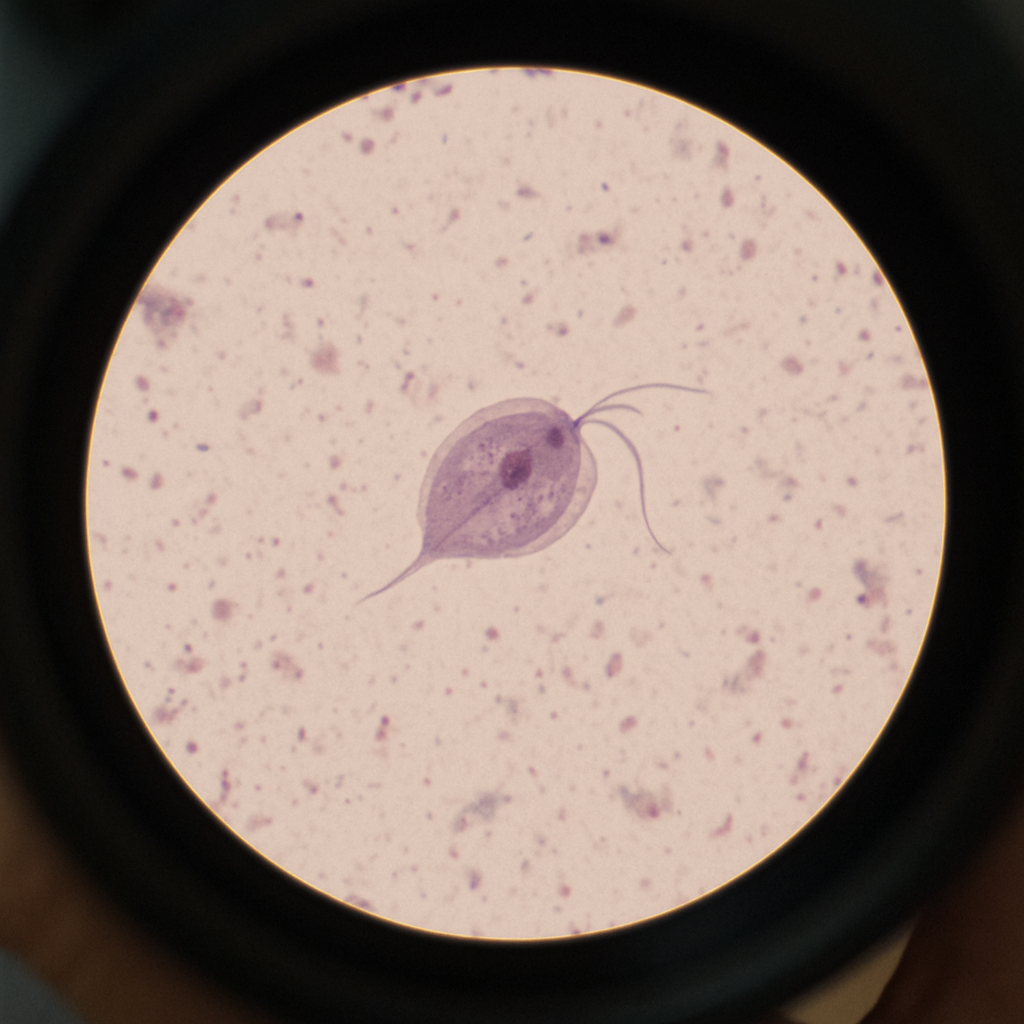Ask Ayurvedic doctor a question and get a consultation online on the problem of your concern in a free or paid mode. More than 2,000 experienced doctors work and wait for your questions on our site and help users to solve their health problems every day.
Can a Woman Get Trichomoniasis on Her Own?

You might’ve heard the term trichomoniasis tossed around in conversations about STIs, but there’s still a lot of confusion floating around—especially when it comes to how it spreads. Questions like “can a woman get trichomoniasis on her own?” or “can you get trichomoniasis without having sex?” pop up all the time, and the internet? Well, let’s just say it isn’t always super helpful.
This article breaks it down for you, from what trichomoniasis actually is to whether you need to have sex to catch it. We’ll explore symptoms of trichomoniasis in women, dig into common myths, and even touch on the Ayurvedic view (because not everything has to come out of a lab, right?). Whether you’re worried, curious, or just trying to understand your body better—you’re in the right place.
Understanding Trichomoniasis
Trichomoniasis is a sexually transmitted infection (STI), but it doesn't always behave the way you'd expect an STI to act. It's actually one of the most common STIs worldwide, and yet, a lot of people haven’t even heard of it—or don’t know they have it. That’s a big deal, considering it can hang around silently for months.
What Is Trichomoniasis Caused By?
First, let’s clarify what we’re dealing with. Trichomoniasis is caused by a microscopic parasite called Trichomonas vaginalis. It’s not a bacteria, but a protozoan (a single-celled organism). When it enters the vaginal environment, it can cause a lot of discomfort—or nothing noticeable at all.
So, to be clear: if you’re Googling what is trichomoniasis caused by, the answer isn’t a bacteria or a virus. It's this little troublemaker parasite. And it spreads primarily through genital contact, particularly vaginal sex.

Don't wait or self medicate. Start chat with Doctor NOW
Transmission Without Sexual Contact
The big question, of course, is whether you can get it without sex. And well... this is where things get a bit murky.
Can You Get Trichomoniasis Without Having Sex?
Technically speaking, trichomoniasis is usually transmitted through sexual activity. But—and this is important—"sexual activity" doesn't just mean intercourse. Genital touching, sharing sex toys, or any genital-to-genital contact can potentially transmit the parasite. So when someone asks, "Can a woman get trichomoniasis on her own?" the answer is complicated. You can’t magically generate it in your body, but it doesn’t always require traditional penetrative sex either.
Non-Sexual Causes: Myth or Reality?
There have been rare reports of trichomoniasis being contracted from damp surfaces like towels, wet swimsuits, or even shared bathwater—but let’s be real: these cases are extremely uncommon. The parasite doesn’t survive long outside the human body, especially on dry surfaces. Still, it’s possible in theory. So, while can you get trichomoniasis without having sex isn’t a ridiculous question, the odds are stacked against it being a likely route.
Yet, if you’ve never had sex and test positive? It's possible you contracted it from a non-sexual route—or from a partner who wasn't honest. That’s another story.

Trichomoniasis in Women
When it comes to trichomoniasis in women, things can get especially tricky. Many women don’t show symptoms right away—or at all. Others might experience discomfort but chalk it up to something else, like a yeast infection or UTI. That’s one reason trichomoniasis symptoms in women often go unnoticed or misdiagnosed.
Symptoms of Trichomoniasis in Women
So what exactly should you look for? Well, here’s where it gets a bit uncomfortable (but necessary). Common trichomoniasis symptoms women might include:
-
Itching or irritation in the genital area
-
A burning sensation during urination
-
Vaginal discharge that may be greenish, yellow, or frothy
-
An unpleasant or "fishy" smell
-
Discomfort during sex
-
In some cases, lower abdominal pain
But again—not everyone experiences these. Some trichomoniasis symptoms in women can be super mild or completely absent. That’s why regular testing is really important, even if you feel totally fine.
And let’s not sugarcoat it: ignoring symptoms can lead to worse stuff down the road. In pregnant women, untreated trich can increase the risk of preterm delivery or low birth weight. For others, it might lead to pelvic inflammatory disease (PID) or make the body more vulnerable to other infections like HIV.
Female Trichomoniasis: Why It’s Often Misdiagnosed
Here’s a fun (well, not really) fact: trichomoniasis female cases are often mistaken for bacterial vaginosis or yeast infections. Why? Because they share similar symptoms—discharge, odor, irritation. And let’s be honest, how many of us really want to run to the clinic over a little itching? Doctors sometimes rely on visual cues or quick tests, but those aren’t always accurate. Without proper lab testing, the diagnosis can get missed.
And it’s frustrating. If you’re experiencing odd symptoms and feel like something’s off, trust that instinct. Push for a full STI screening if you have any doubts. Trichomoniasis symptoms female don’t always scream for attention, but they still matter.

Ayurvedic Perspective on Trichomoniasis
While Western medicine focuses heavily on diagnosis and pharmaceutical treatment (like metronidazole), Ayurveda takes a slightly different approach. It sees symptoms as signs of imbalance—and aims to restore harmony.
Causes According to Ayurveda
In Ayurveda, infections like trichomoniasis may be associated with imbalances in Pitta dosha, which governs heat and metabolism. A rise in Pitta can result in inflammation, burning sensations, and discharges—sounds familiar, right?
Certain behaviors or dietary patterns (like eating overly spicy or greasy foods) may aggravate this dosha, increasing susceptibility to infections. Emotional stress and poor hygiene also play a role in throwing the system off-balance.
Ayurvedic Herbs and Remedies for Trichomoniasis
Ayurveda doesn’t treat trichomoniasis as a named condition, but it does offer remedies for vaginal infections that match the symptoms. Some natural herbs and formulations often used include:
-
Neem: A natural antimicrobial that helps detox the body
-
Turmeric: Reduces inflammation and has antibacterial properties
-
Amla (Indian gooseberry): Boosts immunity and restores balance
-
Triphala wash: Used as a gentle vaginal rinse
-
Aloe vera juice: Soothes internal irritation
Of course, if you're going the Ayurvedic route, it’s best to work with a qualified practitioner. Self-treatment without understanding your unique constitution (prakriti) can do more harm than good.

Diagnosis and Prevention
So by now, you’re probably wondering: if trichomoniasis can be sneaky and misdiagnosed, how do you even know if you’ve got it? Good question. Let’s get into it.
How Trichomoniasis Is Diagnosed
The most reliable way to diagnose trichomoniasis is through lab testing. This usually involves a swab of vaginal fluid (for women) or a urine sample. There are rapid tests now that can detect trichomoniasis female cases within an hour or less, which is a big plus if you’re looking for quick answers.
Unfortunately, trich doesn’t always show up on standard STI panels—so unless you ask for it specifically, your doc might not include it. Yep, that’s a thing. Always advocate for yourself and request a full panel that covers trichomoniasis in women if you have even a hint of suspicion.
Some clinics might try to diagnose it visually or based on symptoms, but as we already talked about... not a great strategy. The symptoms overlap with too many other conditions. If you’re being treated without a test, that’s worth a second opinion.
Can a Woman Prevent Trichomoniasis on Her Own?
Honestly? There’s no 100% guaranteed way to prevent trich unless you live in a bubble. But there are smart moves that can drastically reduce your risk:
-
Use protection (barrier methods like condoms or dental dams)
-
Get tested regularly, especially with new partners
-
Avoid sharing sex toys without cleaning them properly
-
Maintain vaginal health with good hygiene—but skip the scented soaps, please
-
Limit partners or be selective with who you trust intimately
Some women ask, “Can a woman get trichomoniasis on her own?” Technically, no—you don’t create it from nothing. But if you’re not in a sexual relationship and still contract it, it could be from a non-sexual source (rare), or it might mean a past infection just now showing symptoms. Or worse, someone you trusted wasn’t totally honest. Sad, but real.
Conclusion
Let’s recap: trichomoniasis is caused by a protozoan parasite, not bacteria. It spreads primarily through sexual contact, but rare non-sexual transmissions have been documented. Trichomoniasis symptoms in women can range from obvious to completely invisible, which is why many cases go untreated—or misdiagnosed.
Ayurveda offers some natural insights and remedies, but for serious cases, medical treatment is essential. The best protection is awareness, regular testing, and understanding that your health is your responsibility. Whether you're sexually active or not, knowing the facts helps you protect yourself—and others.
If you found this article helpful, don’t keep it to yourself. Share it with someone who might need to read this today. Knowledge is sexy, after all.
FAQs
Trichomoniasis is caused by which bacteria?
Trick question! Trichomoniasis is caused by a protozoan parasite called Trichomonas vaginalis—not a bacteria.
Can trichomoniasis be contracted from shared baths or pools?
It’s extremely rare, but technically possible if the water is warm and contaminated. The parasite doesn’t survive long outside the body though, so this is more of a myth than a real risk.
What are long-term risks if trichomoniasis is untreated in women?
If left untreated, it can increase the risk of pelvic inflammatory disease, complications in pregnancy, and make it easier to contract or spread other STIs, including HIV.

